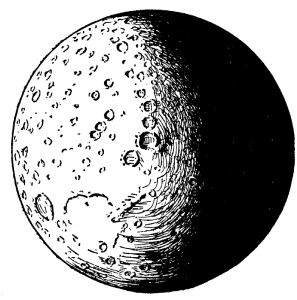Why you can ignore “Sharp’s Rule”
An ordinary believer with ordinary reading comprehension can see that “Sharp’s Rule” recommends misinterpretations.
An ordinary believer with ordinary reading comprehension can see that “Sharp’s Rule” recommends misinterpretations.
I had the privilege yesterday of being interviewed by Sam on his Transfigured podcast. The episode is below. Sam did a great job with the episode. We discuss my opening arguments, and I give some hot takes on the rival views of my co-authors. Here’s the YouTube version; you can get the audio-only version wherever you get your podcasts. It will make the most sense… Read More »Transfigured podcast interview on the debate book
Three Christian philosophers on perfect being theology, tradition in philosophy going back to the great medieval philosopher Anselm of Canterbury (d. 1109), but really, as Leftow has shown, back to Augustine, Plato, and the Christian Bible. First, a great interview (click the thin blue button) with Oxford philosopher Brian Leftow by Robert Lawrence Kuhn, for the PBS should Closer to Truth. I did not know that Leftow was… Read More »Is God Perfect?
Dale writes: A self is being which is in principle capable of knowledge, intentional action, and interpersonal relationships. A god is commonly understood to be a sort of extraordinary self. In the Bible, the god Yahweh (a.k.a. “the LORD”) commands, forgives, controls history, predicts the future, occasionally appears in humanoid form, enters contracts with human beings, and sends prophets, whom he even allows to argue… Read More »Does God have a body?
As we’ve seen, the “Athanasian Creed” appears to be incoherent, that is, inconsistent with itself. One response is to creatively interpret it in a way which does seem coherent. We will explore this approach in many future episodes. Another response is to stick with the other catholic creeds, such as the “Apostles’” and Nicene creeds, rejecting the “Athanasian” Creed as unnecessary and unhelpful. That’s what’s… Read More »podcast 4 – Anglicans vs. “Athanasius”
Origen sez: you must say that Father and Son are “one God.” But does he think they are?
In round 2, Bowman descends to close combat on a few central texts. But first, he makes the methodological point that it is too easy to claim simply that your preferred texts are clear, whereas the ones central to your opponent’s case are obscure or ambiguous. I think that’s right, and that it is also correct that “academia… encourages revisionism”. He says, In the end,… Read More »SCORING THE BURKE – BOWMAN DEBATE – Bowman 2
Leading scholar Dr. Richard Bauckham has done a public service by chewing thoroughly through the “Lost Gospel”: Dr. Mark Goodacre has posted Dr. Bauckham’s article(s) here. Let’s just say, he determines that it is all bun and no meat. A few teasers: They seem to be proposing a unique genre of ancient literature. Why should we believe them? It seems to be simply a way of getting… Read More »a real scholar on the so-called “Lost Gospel”

What I call positive mysterianism about the Trinity is the view that the doctrine, as best we can formulate it, is apparently contradictory. Now many Christian philosophers resort to this in the end, but only after one or more elaborate attempts to spell the doctrine out in a coherent way. On the other hand, some jump more quickly for the claim, not really expanding on or interpreting the standard creedal formulas much at all. These are primarily who I have in mind when I use the label “positive mysterian”.
I ran across a striking version of this recently, in a blog post by theologian C. Michael Patton, who blogs at Parchment and Pen: a theology blog. In his interesting post, he says that all the typical analogies for the Trinity (shamrock, egg, water-ice-vapor, etc.) are useful only for showing what the Trinity doctrine is not.
This contrasts interestingly with what I call negative mysterians. Typically, and this holds for many of the Fathers, as well as for people like Brower and Rea nowadays, they hold that all these analogies are useful, at least when you pile together enough of them, for showing what the doctrine is. Individually, they are highly misleading, and only barely appropriate, but they seem to think that multiplying analogies like these results in our achieving a minimal grasp of what is being claimed. Maybe they think the seeming inconsistency of the analogies sort of cancels out the misleading implications of each one considered alone.
In any case, in Patten’s view, the best you can do is to Read More »Mysterians at work in Dallas
He tries his hand at a little ad hoc philosophizing about death.

I recently stumbled upon a great post by Michael Patton that just about perfectly expresses how I’ve felt about Christian apologists since growing past teenagerhood.
In part:
This is the problem that I have with some apologists (those who defend the faith). Don’t get me wrong, I believe very much in apologetics and also love many apologists. But very rarely do I find a reasonable apologist. Most are very hardened because they are committed first to defending their particular position, not so much to learning.
Read the whole thing. He also has done a similar post recently.
I would add: apologists too often fall into mere rhetorical violence: hyperbole, attacking a straw man, verbal aggression, smug, acid condescension, simply repeating oneself more loudly, insults, poisoning the well, and so on. And this is leaving aside poorly constructed arguments. Sadly, debates between philosophers (one or both of whom may be atheists) are nearly always “cleaner” (more reasonably and respectfully conducted) than your average debate between a Christian apologist and anyone else.
I’m always reminded of what James says:Read More »Patton’s problem with Apologists
Some interesting comments on philosophy and philosophers by Nigel Warburton, one of the two hosts of the best philosophy podcast, in an interview on the occasion of his resigning his academic post. …that’s just the nature of philosophy. It’s always difficult… If you’re not having trouble then you probably don’t really understand what’s going on. Many people seem not to have trouble, but I know… Read More »Nigel Warburton on contemporary philosophers
 Theology blogger / author / golf pro Kermit Zarley asks: Is Jesus Divine Because He Was Worshipped?
Theology blogger / author / golf pro Kermit Zarley asks: Is Jesus Divine Because He Was Worshipped?
He answers in the negative. As usual, he highlights some important scholarship. In part,
When the gospel Evangelists report that someone performed proskuneo toward Jesus, Bible translators invariably reveal their Christological bias by rendering it “worship,” suggesting that that person thought Jesus was “divine” or “God.” But when the Evangelists relate that a person performed proskuneo toward someone other than Jesus, they translate it “bowed down,” “bend the knee,” or “prostrate.” So, they translate it “worship” when done to Jesus, but a physical act when done to someone else.
I agree that it is important that Christians should worship Jesus too, and not only God. The New Testament, in my view, clearly teaches this; it is a consequence of his being raised to God’s right hand. I also agree that this is not at all the sin of idolatry.
Keep in mind that the passages he’s discussing above concern Jesus before his resurrection and exaltation. He is clearly worshiped in the fullest religious sense after. e.g. Philippians 2, Revelation 5, as well as prayed to.
Contrary to Mr. Zarley, I do think it is technically a violation of the command, now made out of date by the one who issued it, to worship only Yahweh (i.e. the Father). I would add that it’s simply not correct to define the sin of idolatry as worshiping anyone other than God.
I don’t think we can make much progress distinguishing kinds of (religious) worship. To say there are kinds of worship is one thing, but to display the differences is another. But we can distinguish indirect from direct worship, as the New Testament does in several places. We worship God (indirect object) by worshiping his Son (direct object).
Here’s another angle. In the NT, the justification given for worshiping Jesus is that this is our obeying the God who vindicated, raised, and exalted Jesus. Now, if we should worship Jesus because he’s fully divine, or because he’s God himself, or because he shares a divine nature with the Father… wouldn’t that be their main reason?
Below the fold, much better music than we usually feature on this blog. Read More »Zarley on “worship” of Jesus in the New Testament
The eastern emperor and the western emperor agreed: there needed to be a new ecumenical council to somehow solve the theological disagreements festering from the controversy over Arius in 324-5.

Last Christmas season I posted in a slightly Grinch-like way about catholic Incarnation theories, and about some Christians’ lack of critical thinking about them.
There’s an interesting human impulse observable here. The best analogy I can think of right now is posters like the one to the left. The ladies love them.
Why? There’s the sex appeal of the dude. And the cute baby. Everyone likes a cute baby.
But there’s something else, something affecting about a big, strong, tough manly man, stooping to gently cradle a teeny, vulnerable baby. He’s made himself so vulnerable. Of course, that adds to the “sexy” part. My point is, the affecting nature of the man’s condescension is a distinct element of the appeal.
Now imagine that God, big strong God, becomes an ignorant, weak, dependent little baby. There’s a similar, recognizable emotional tug there. What an amazing idea! Of course, it may be amazing in part because it’s contradictory. But I’ll not argue that here.
Instead, a bit of cross-cultural comparison. Christians aren’t the only ones who go in for the idea of a god who comes down from his mighty position, to be a cute, puny little baby.
The Ramayana is an epic poem, and a sort of scripture in Hinduism. Parts of it go back perhaps to the 400s BCE, though it comes in many versions, some of which are from the high middle ages. The clip below is from a wildly popular Indian television series from 1986 called Ramayan. If you’re interested in Hinduism, I recommend it, but it’s a real time commitment to watch the whole thing. I’ve edited some bits of it, to include the more theological parts, and to get it down to youtube length. It’s here, Ram or Rama, is supposed to be an avatar of the god Vishnu.
My point is notRead More »God the baby – Rama / Ram, avatar of Vishnu
Dr. Bob Cargill of the University of Iowa reviews The Lost Gospel by Simcha Jacobovici and Barrie Wilson. In his view, it’s a stink-bomb of a Christmas present. In part (emphases added) Just don’t bother. Were it a Dan Brown-esque novel, positing a speculative interpretation about the relationship between Jesus and Mary Magdalene utilizing a fanciful allegorical interpretation of a document written six centuries after Jesus… Read More »The Lost Gospel – Not Lost, and Not a Gospel!
Saith the late Christian sage Dallas Willard: The Kingdom Among Us is simply God himself and the spiritual realm of beings over which his will perfectly presides – “as it is in the heavens.” That kingdom is to be sharply contrasted with the kingdom of man: the realm of human life, that tiny part of visible reality where the human will for a time has… Read More »Jesus: Not a Cheerleader
 In the preceding chapters, Richard has been arguing for the impossibility of only one divine person. If there’s one, there must be more than one; more than that, there must be at least three.
In the preceding chapters, Richard has been arguing for the impossibility of only one divine person. If there’s one, there must be more than one; more than that, there must be at least three.
To do this, he’s used Anselmian perfect being theology – arguing that since God is absolutely perfect, and it would add to his perfection to have certain features, he must indeed have those. It seems that he prefers a three parallel arguments, from perfect goodness, perfect happiness, and perfect glory. (See, e.g. chapter 5.)
As the book goes on, though, it seems to me that he prefers the argument from happiness. Here, in chapter 21, he sums up his case, because he feels some pressure here at the end of the book to explain why all this should be considered monotheism, and not polytheism. More on that next time. Here’s what looks like his summary of his argument:
The fullness of supreme happiness requires fullness of supreme pleasure. The fullness of supreme pleasure requires fullness of supreme charity. The fullness of supreme charity demands fullness of supreme perfection. (p. 393)
This last part isn’t easy to see, but as we’ve been over it, I let it go here. In chapter 21, Richard assumes that perfect being reasoning should be applied to each member of the Trinity. If we do this, then we prove the existence of equally perfect beings, such that “all coincide in supreme equality. In all of them there will be equal wisdom, equal power, undifferentiated glory, uniform goodness, and eternal happiness…” (pp. 393-4, emphasis added)
This, he asserts, meets the requirement of the “Athanasian” creed,Read More »Richard of St. Victor’s De Trinitate, Ch. 21 (Dale)
Christmas time! So time to sell magazines (etc.) with sensational, poorly reasoned articles which attempt to be bold and provocative. It’s as predictable as the rising sun. No book is evidence, right? Right. Else we’d be able to prove the reality of Batman by citing a comic book. [Facepalm] This argument kills with 8th-graders. But any adults should be unimpressed. I’ll wager that any adult can think… Read More »no, Jesus is not a fictional character